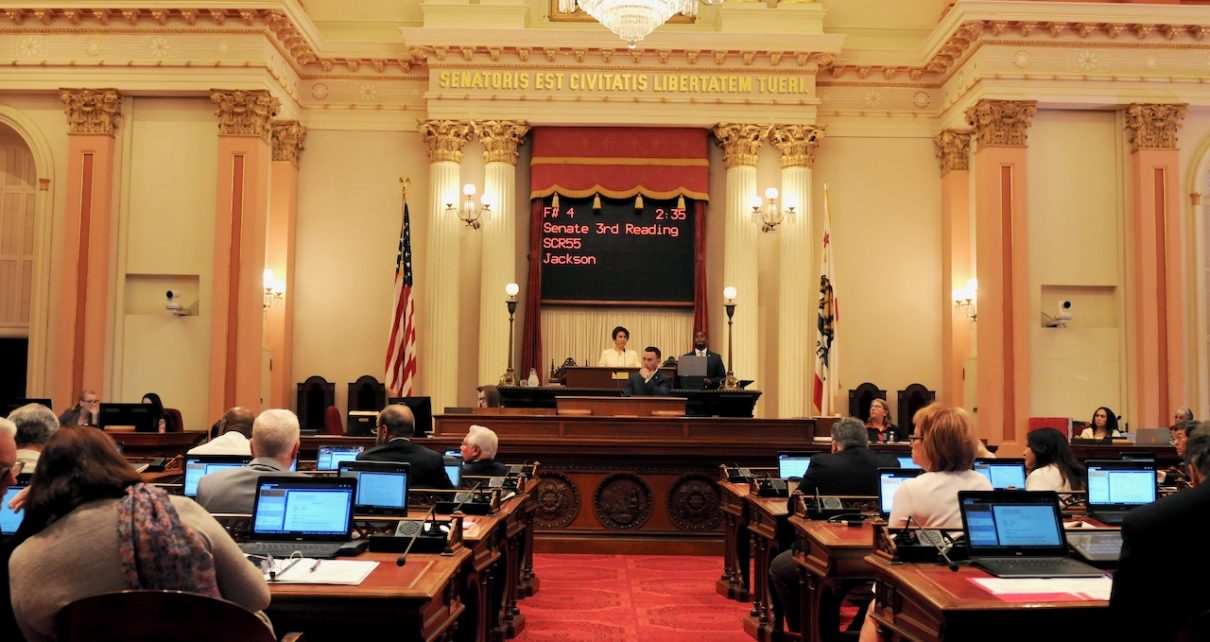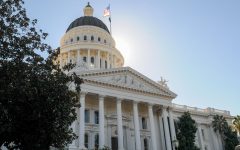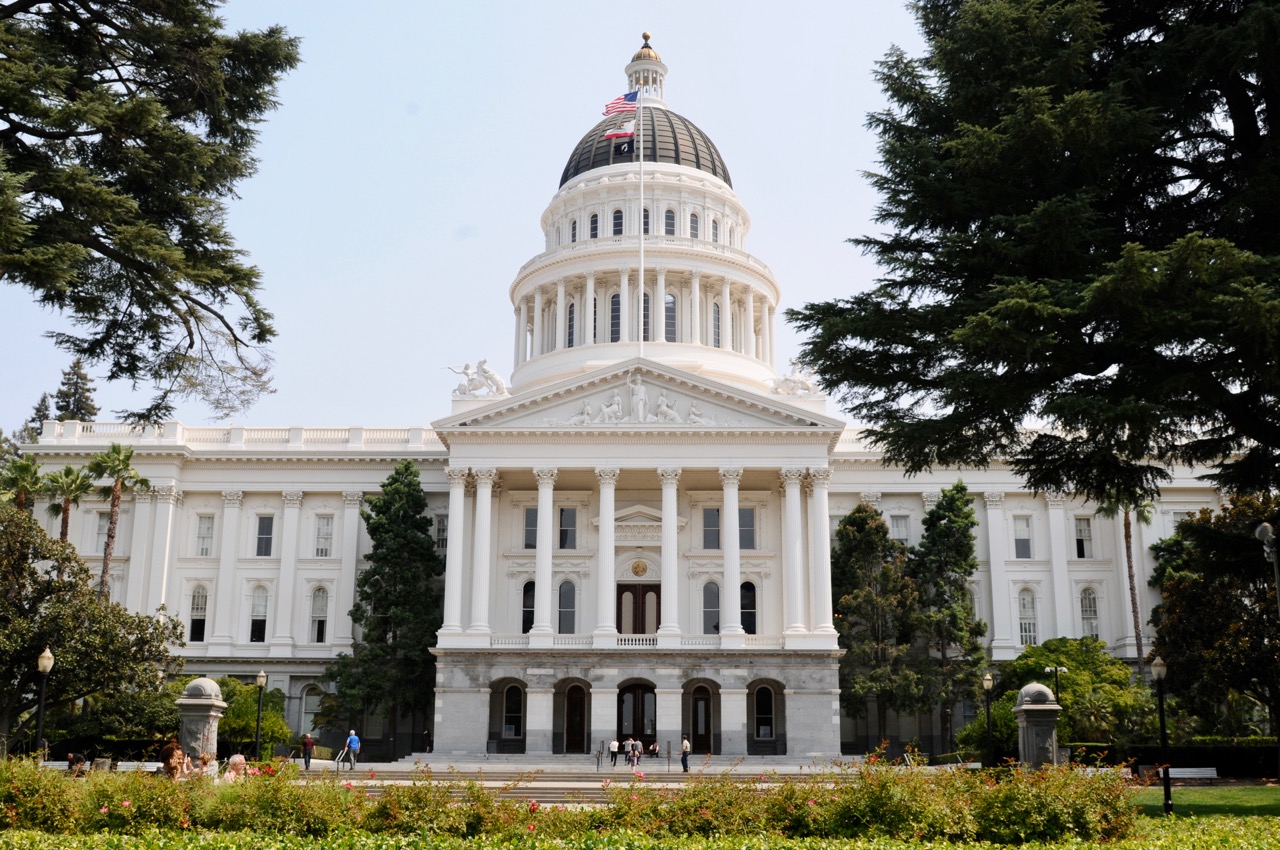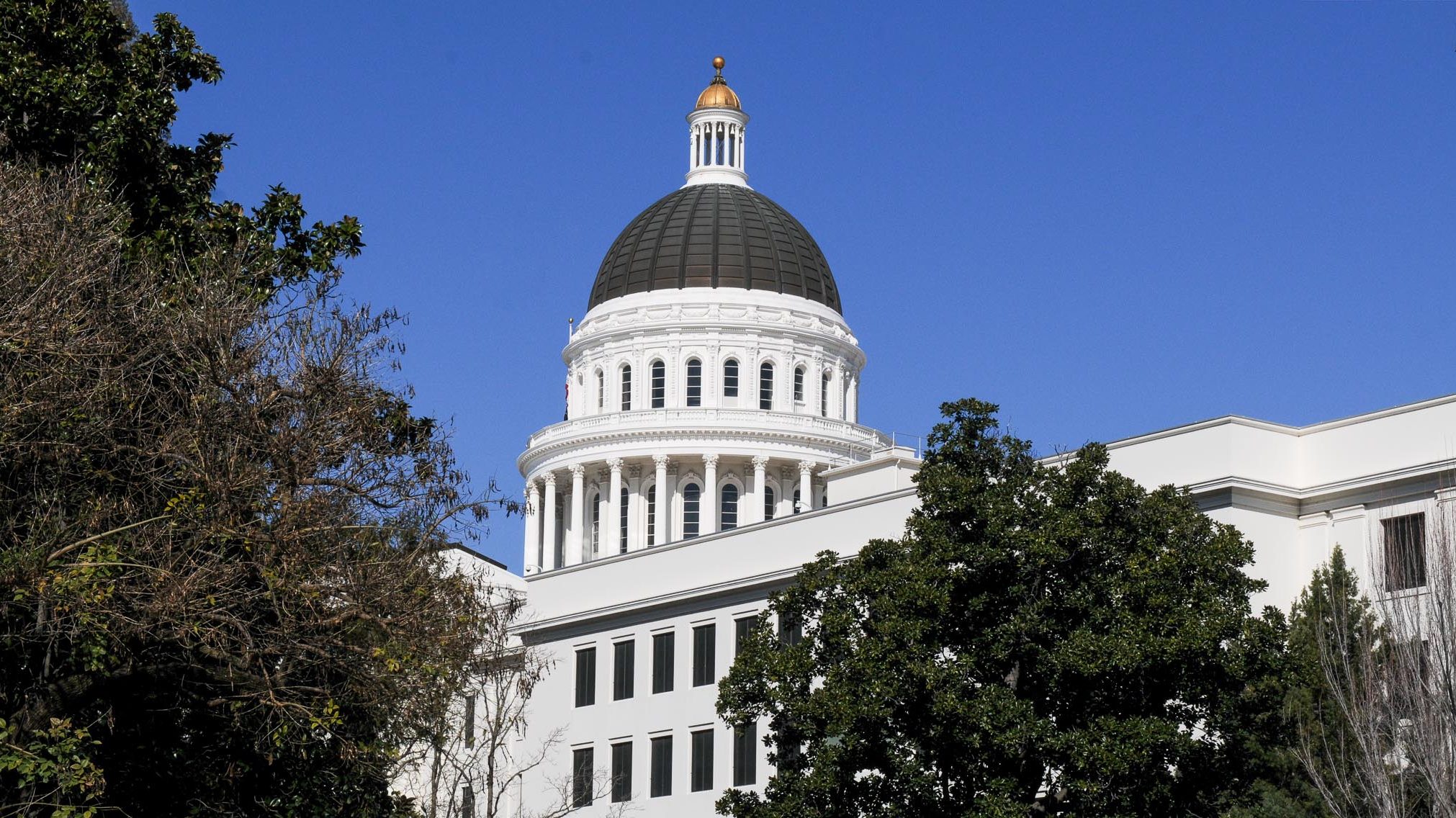
California State Senate. (Photo: Kevin Sanders for California Globe)
California State Budget Lingo
A brief review of key terminology is warranted
By Chris Micheli, February 7, 2022 7:24 pm
Now that California’s budget session is in full swing, a brief review of key terminology is warranted. The phrases that readers should be familiar with are defined by the Office of Legislative Counsel and the Department of Finance on their respective websites. The following are some of the key budget terms:
A-Pages – This is the term often used to refer to the Governor’s Budget Summary, which are the Governor’s Budget highlights.
Appropriation – An appropriation is an amount of money and authorization for a specific agency to make expenditures for a specified purpose.
Appropriation Schedule – This is the detail of an appropriation showing where appropriations are made to each of program.
Appropriations Limit (“Gann Limit”) – The constitutional limitation on the maximum amount of tax proceeds that state or local governments may appropriate in a fiscal year. The limit is based on 1986-87 fiscal year appropriations, and is adjusted annually.
Authorized Positions – In the Salaries and Wages publication as part of the Budget, it is the past year’s total authorized positions in state government.
Baseline Budget / Workload Budget – This is the “budget year cost of currently authorized services, adjusted for changes in enrollment, caseload, population, statutory cost-of-living adjustments, chaptered legislation, one-time expenditures, full-year costs of partial year programs, costs incurred pursuant to Constitutional requirements, federal mandates, court-ordered mandates, state employee merit salary adjustments, and state agency operating expense and equipment cost adjustments.”
BCP (Budget Change Proposal) – This is an acronym for the term “Budget Change Proposal” which is a document prepared by a state agency and the Department of Finance to propose and document budget changes to maintain the existing level of service or to change the level of service, propose new program activities not currently authorized, or to eliminate existing programs.
Blue Pencil / Line-Item Veto — This is a term often used to refer to the Governor’s ability to line-item veto items of appropriation in the Budget Bill or appropriation bills.
Budget – The state budget includes proposed expenditures of state moneys for the next fiscal year.
Budget Act – This is the Budget Bill after it has been enacted into law.
Budget Bill – This is the annual bill required by the constitution that sets forth the spending proposal for the next fiscal year, containing the budget submitted to the Legislature by the Governor.
Budget Bill Junior – One or more bills that make adjustments to the annual Budget Bill (the plural is budget bills junior).
Budget Year / Fiscal Year – The fiscal year addressed by a proposed budget, beginning July 1 and ending June 30. It is the 12-month period on which the state budget is planned. The federal fiscal year begins October 1 and ends September 30 of the following year.
Budget Year Plus One (or Plus Two) – This refers to the fiscal year following the upcoming fiscal year that begins July 1. For example, the 2022-23 budget year begins July 1, 2022, while the Budget Year Plus One begins July 1, 2023.
Capital Outlay – Generally, these are state expenditures to acquire or construct real property.
Continuous Appropriation – This is a constitutional or statutory expenditure authorization that is renewed each year without further legislative action.
Control Sections – These are the sections of the Budget Act (e.g., 1.00 to the end of the Budget Bill) providing specific controls on the appropriations itemized in Section 2.00 of the Budget Act.
Current Year Budget – A term used in budgeting to designate the operations of the present fiscal year in contrast to past or future periods, as well as the fiscal or budget year.
Debt Service – The amount of money required to pay interest on outstanding bonds and the principal of maturing bonds.
DOF (Department of Finance or “Finance”) – The Department is a fiscal control agency that prepares the state budget and advises the Governor and state agencies on budget matters.
Early Action – A relatively new term to signify budget actions that occur prior to the normal June actions.
Finance Letter – These are the revisions to the Budget Bill or current year expenditures that are proposed by the Department of Finance and addressed to the Legislature.
Fund Balance – For budgeting purposes, this is the amount of the excess of a fund’s resources over its expenditures.
General Fund (GF) – This is the state’s main account for revenues, primarily from the personal income tax, sales and use tax, and corporation taxes.
Governor’s Budget Summary – This is a companion publication to the Governor’s Budget that outlines the Governor’s policies, goals, and objectives for the budget year.
January 10 Budget – This refers to the Governor’s initial budget proposal, which is due per the Constitution by January 10.
JLBC (Joint Legislative Budget Committee) – This is a joint committee with an equal number of Assembly Members and Senators. It is the duty of the committee to ascertain facts and make recommendations to the Legislature concerning the State Budget, the revenues and expenditures of the state, and the organization and functions of the state and its departments, subdivisions, and agencies, with a view to reducing the cost of the state government and securing greater efficiency and economy.
Legislative Analyst (LAO) – The Legislative Analyst, who is a legislative appointee, and his or her staff provide thorough, nonpartisan analysis of the budget submitted by the Governor. The LAO also analyzes the fiscal impact of other legislation and prepare analyses of ballot measures published in the state ballot pamphlet.
Line-Item Veto / Blue Pencil — This is a term to refer to the Governor’s constitutional authority to line-item veto (i.e., reduce or eliminate) items of appropriation in budget or appropriation bills.
Local Assistance (LA) – These are expenditures made for the support of local government or other locally administered activities.
May Revise / May Budget Revision — The Governor is required to update his or her January budget proposal after the April tax receipts are available. Occurring May 14, it is an updated estimate of revenues and expenditures that replaces the estimates contained in the Governor’s budget submitted in January.
One-Time Cost – This is a proposed or actual expenditure that is non-recurring (usually only in one annual budget) and not permanently included in baseline expenditures.
Reversion – This occurs with the return of the unused portion of an appropriation to the fund from which the appropriation was made.
Schedule – The detail of an appropriation in the Budget Bill or Act that shows its distribution to each of the programs.
Special Funds – These are funds created by statute, or administratively per Government Code Section 13306, used to budget and account for taxes, licenses, and fees that are restricted by law for particular activities of the government.
Summary Schedules – These are the various schedules in the Governor’s Budget Summary that summarize state revenues, expenditures, and other fiscal and personnel data for the past, current, and budget years.
Trailer Bill – These are the bills that are required to enact statutory changes related to implementation of the budget.
- Attorneys-in-Fact in Probate - February 25, 2026
- Pacific Marine Fisheries Compact - February 24, 2026
- Relations of LLC Members and Managers - February 24, 2026




